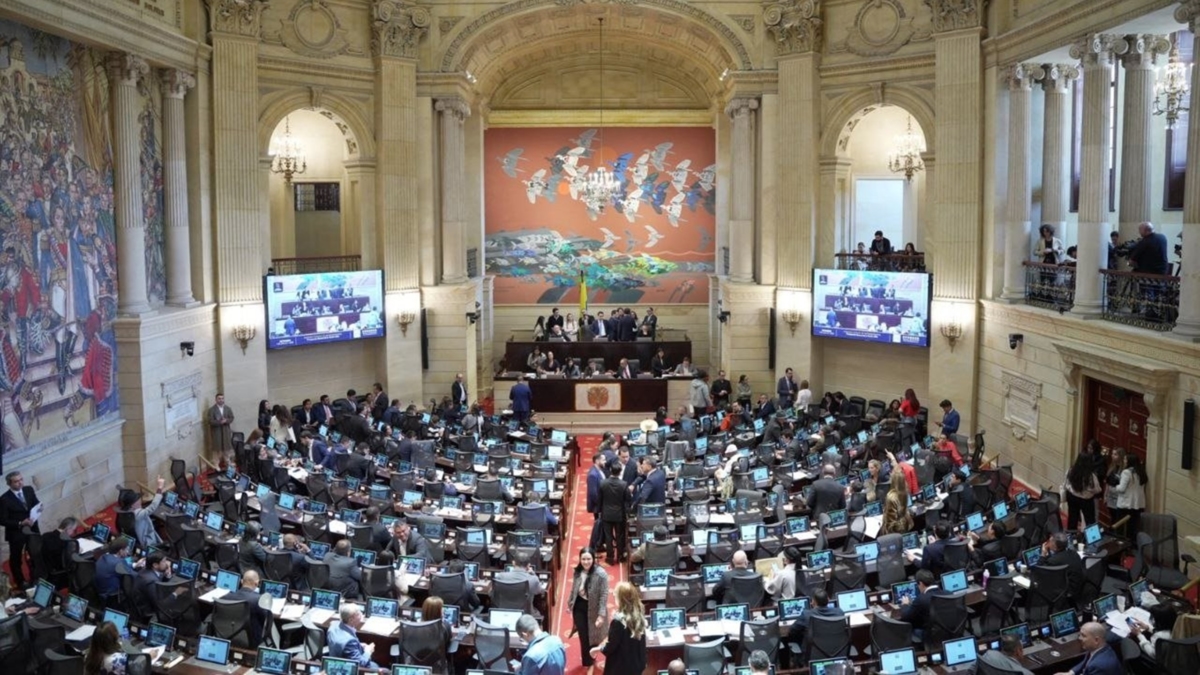The government enters the final week of the campaign waving the white flag.

The government enters the final week of the campaign waving the white flag. Ministers Luis Caputo and Mario Lugones, and Secretary-General Karina Milei, apologized in writing to the Chamber of Deputies for their inability to appear at the interpellations scheduled for Wednesday. Cabinet officials had so far ignored the calls to testify from both chambers, displaying a silence as strident as the refusal to discuss a budget for two years. With this excuse, they formally admitted with their signatures that summonses to interpellation for decisions of their administration are legitimate. The opposition, which had requested the interpellation session, forced the Executive Branch, through Martín Menem, to state in writing the reasons for their absence. They cited administrative tasks as preventing them from attending last week. If they did not do so, they would begin the two sessions on Wednesday with signs of war that could compromise the officials in court. Beyond the technical aspects, this is an admission by the Executive Branch of aligning its positions for the country that follows next Sunday's elections.
The second sign was the summons by the ruling party in the House of Representatives to the leaders of all the blocs this Monday morning to begin discussing the 2026 budget. This is a notable change from the previous two years, when José Luis Espert became legendary for working to the letter of the book as president of the Budget and Finance Committee, disarming any objections to economic policy, starting with not discussing the 2024 and 2025 budgets . The new head of the committee, Alberto Tiburcio "Bertie" Benegas Lynch, called the presidents of each bloc to begin listening to the demands of the various sectors . He appears to be following the method the government resigned itself to in 2024, when the first version of the Basic Law failed: he convened the blocs, listened to their demands, made counterproposals, and passed the new law, which moderated the revolutionary pretensions of Milei's conservative government. There are doubts in the opposition about whether the government will move forward with a budget agreement. This is something Macri called for in his Thursday address. The test of the government's intention to expand its majority, heading into the 2026-2027 term, seeks, according to Macri, to "build a new majority and a Budget Law approved by this new majority." Economists from friendly blocs believe that the agreement with the IMF imposes on the government the sanctioning of the budget, in addition to expanding its range of allies. But they doubt what the reaction will be when the opposition demands changes in the use of funds or a debate on the government's evil: regulations.
These signs of armistice are understandable in a minority government whose modest project is to create a third in Congress that would allow it to veto and/or resist vetoes. In politics, it's like preparing an exit door. No one ever asks for a vote to be... vice president. Securing a third is like settling for leftovers from the banquet, but, in the process, it protects the possibility of impeachment. That's not talked about. But there's never been talk before of rejecting a DNU (Decree) from the Executive Branch. It happened for the first time with the espionage funds. Nor had a motion of censure against the chief of staff made such progress, and there's already a date to discuss it in the Chamber of Deputies. The signs of capitulation have the meekness of any political negotiation, but never before has the government seemed so on the verge of losing everything if it doesn't transfer to the institutional level the reality that Javier Milei's presidency is advancing the agenda of Together for Change, with officials from Together for Change and asking for help from those who were Together for Change. The key point is that the two government candidates in two main districts—Buenos Aires and CABA—are from the PRO (Patricia Bullrich and Diego Santilli).
This government agenda was shared by four of the five presidential candidates in the first round of 2023: the exception was Myriam Bregman, a testament to the Trotskyism of the Indies. Milei began his administration repudiating the consensualism intrinsic to the political forces that sustain the economy and politics, with a single discourse raising banners and styles that the electorate never supported in Argentina: an authoritarian bias; a blind adherence to slogans of the international right, such as fighting against a communism and socialism that do not exist anywhere in the world ; deploying verbal violence unbecoming of a peaceful country; and importing an exotic cultural war that he wages with arguments typical of a class war. He squandered the common ground that helped him secure the (subdued) Ley de Fundamentos (Bases Law) and the slippery DNU 70/2023 in Congress, and that allowed him to govern with emergencies and legislative delegations that no government had ever had before.
Did Milei do this to discuss a program of ideas or a method of government? Without delving into the inscrutable world of intentions, it's presumable that he did it to seek the power he had at the beginning of his presidency. Like any government with low legitimacy at the polls, he undertook a discrediting of the legitimacy of others. Over these two years, he attacked the main leaders who concentrate power in Argentina and who share the same agenda as him. He distanced himself from these leaders and tried to divide their parties, despite the fact that they helped him govern. Examples include Mauricio Macri, Miguel Pichetto, and Juan Carlos Romero, whom he ignored for two years and tried to divide their parties. He succeeded with the PRO (Progressive Party of Argentina), as well as with the Unión Cívica Radical (Radical Civic Union). This sparked a power struggle that he himself unleashed. The 2025 election process, so far, proves that he has failed to increase that power and that the electorate that brought him to the presidency has so far abandoned him.
A study that has reached the ruling party in the Province of Buenos Aires examined the electoral circuits for the September 7 elections and showed that the PRO electorate was more loyal to the alliance Milei forged with them than the LLA's own electorate in 2023. On September 7, 45% of LLA voters in 2023 abstained. That abstention rate reached 65% in the First Electoral Section and 69% in the Third Electoral Section. PRO voters who had voted for Milei in Buenos Aires in 2023 in the second round were more loyal in 2025: 50% of them voted for the PRO-LLA alliance lists. Preliminary perceptions need to be rectified: it was the La Libertad Avanza vote that abandoned Milei in PBA. The question is: is it possible that the campaign allowed the government to regain those supporters? That explains the freakish uproar at the Movistar Arena, an attempt to win back the inorganic vote from the boxed wine nonsense. In the ruling party headquarters in Buenos Aires, they estimate, even worse, that the Espert case could cost the Mileismo some 5% of the vote . The tactical reaction to the episode has been a pile of nonsense, such as starting a public fight over the printing of the ballots or, in the realm of bloopers, Santilli, who is in third place, despite being the best candidate of the PRO-LLA alliance, asking that if they want to vote for him, they mark the "bald one." What if the voter marks Taiana, who lacks anything, it's baldness?
Trump's experiment in transnational intervention has an interesting precedent. It is Hugo Chávez's experiment in regional intervention, sponsoring the formation of Chavista political parties in South American countries during the first decade of the century. Chavismo managed to establish allies who relied on his government in several countries and supported them with Bolivarian funds. Chávez's intervention in countries like Argentina and Brazil discouraged them from committing to the construction of the MERCOSUR parliament. Governments like those of Lula and Néstor Kirchner warned of the threat of Chavismo participating in parliamentary elections in the Southern Cone countries, as a tool for Chávez to build regional power based on his oil wealth and his program of extreme military nationalism. Argentina and Brazil were more than reluctant to advance reforms to legalize the election of parliamentarians . Chávez died before this regional congress was fully operational (like the European Parliament in Strasbourg). The project was frozen at its founding and is now a body that generates recommendations that no one listens to, and whose legislators, like those in Argentina, neither receive salaries nor have immunity.
If it went in, it was a goal. This obvious fact, which tends to distract football commentators, is reminiscent of the wooden candy Trump used to flatter Milei. A chill must have run down his wig, like when Emilio Cárdenas, the neoconservative lobbyist who represented Menem in the Argentine delegation to the UN, heard him say: "As long as I'm here, nothing will happen to you." Cárdenas, who had submitted his resignation, felt the icy current run down his back. "And when Menem is gone, what will happen to me?" he must have asked himself. Just as Milei might ask herself today, what would Trump do to him if he lost the elections, this one or the 2027 one? Cárdenas was concerned when witnesses reported the anecdote, which occurred the day Cárdenas said goodbye to Menem upon leaving office, in front of the private elevator in the presidential suite. Trump's statement is a campaign message to Argentines on both sides. To Milei, to get her act together and make an effort to win the elections. To the voters, if they want to save themselves, vote for Milei.
"I'll only help you if you win" translates something Pichetto often tells the members of the "Mille" (the "mileístas") when they go astray in Congress: "They love to keep losing, and you have to win. Try to win." For some, it's been extortion. It's excessive, because that tool has been cultivated by other political warriors. Néstor lashed out at the people of Buenos Aires in 2005, telling them: "This time, vote well and not as you usually do" - and telling them not to vote for "the descendants of De la Rúa, Menem, Erman González, and Enrique Olivera." Cristina and Máximo also campaigned against the Buenos Aires vote, which had brought the PRO party to hegemonic rule in the city for the last two decades. The government is tied to fantasies as if the great masses who decide the elections would vote for La Libertad Avanza out of fear of Trump . The intervention of outsiders is a norm of globalization. Every national phenomenon today has transnational effects. The populisms of the 21st century embrace a nationalism that rejects globalization. But these same nationalists contribute to the Kantian utopia of a world government. Using the same transnational criteria with which Trump intervenes in the Argentine economy to consolidate the interests of the United States, an American citizen or a citizen of any country intervened by Trump could demand the right to vote in the United States elections.
Receive all the news, coverage, stories, and analysis from our specialized journalists in your email.
I WANT TO RECEIVE IT
Clarin




